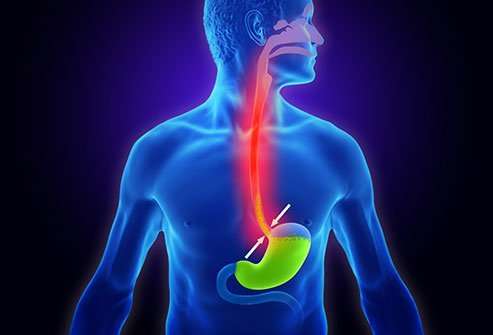
Gastroesophageal reflux disease (GERD) is a digestive disorder that affects the ring of muscles. This is between the esophagus and the stomach. However, it occurs when stomach acid frequently flows back into the tube connecting the mount and stomach. This backwash can irritate the lining of the esophagus. Many people experience acid reflux from time to time. GERD is mild acid reflux that occurs at least twice a week.
Symptoms of Gastroesophageal.
The most common symptoms of GERD are heartburn. It usually feels like burning chest pain. It starts behind the breastbone and moves upward to the neck and throat. Therefore, many people say it feels like food is coming back into the mouth. This leaves an acid or bitter taste. The burning, pressure, or pain of heartburn can last as long as 2 hours. However, it can worse after eating, lying down, or bending over can also result in heartburn. Besides pain, people may also have:
- Nausea.
- Bad breath.
- Trouble breathing.
- A hard time swallowing.
- Vomitting.
- A lump in the throat.
- Wearing away of tooth enamel.
- However, if you have acid reflux at night, you may also have:
- A lingering cough.
- Laryngitis.
- Asthma.
- Sleep problems.
Causes of Gastroesophageal
Occasional acid reflux is quite common. It often occurs as are eating a large meal or lying down after eating. However, recurrent acid reflux typically has other causes and risk factors. GERD occurs in people of all ages. It happens when the valve that prevents stomach contents from going back up to the esophagus becomes weak. In addition, a hiatal hernia is a condition in which an opening in the diaphragm lets the too of the stomach move up into the chest. This lowers the pressure in the esophageal sphincter and increased the risk of GERD.
Home Remedies.
Baking soda. Mix a teaspoon of baking soda with a cup of water and then drink it. But here’s the catch. Baking soda may only provide temporary relief. Therefore, this remedy is meant for short-term relief and not for long-term treatment.
Avoid trigger foods. A great way to help prevent acid reflux is to avoid trigger foods. Some trigger foods include citrus fruit, soda, caffeine, and alcohol. Therefore, the best way to figure out which foods trigger your acid reflux is to keep a food journal.
Apple cider vinegar. Apple cider vinegar is quite strong. Mix about a tablespoon of Apple cider vinegar with a glass of water. However, if the mixture is unpalatable, try to add honey.
Ginger. This is a powerful antioxidant and has anti-inflammatory properties. It may also help with digestion. Peel the ginger and then grate it. However, consuming ginger in moderation is about four grams per day. Too much ginger has adverse effects and makes your symptoms worse.
- Tiffany Chen age, husband, children, films, TV shows, De Niro.
- Emma stone Age, Child, Relationships, Movies, Net Worth
- Alexis Rivas KNSD, age, family, children, husband, net worth.
- Lou Retton age, family, children, husband, career, net worth.
- Jackie Layer Bio-Age, Children, Husband, Worth, Career
- Leslie Van Houten age, husband, children, imprisonment, death.
- Casey Claiborne Bio, Wiki, Age, FOX 7, Education, Family, Children, Wife, Net Worth
- Public Universities in Kenya
- A list of special secondary schools, and contacts.
- Mount Kenya University history, fees, courses
- The best private primary schools in Nyeri county.
- Kenya Institute of special education, courses.
- Egerton university, fees, location, courses.
- How is The Lenana Boy school and location?